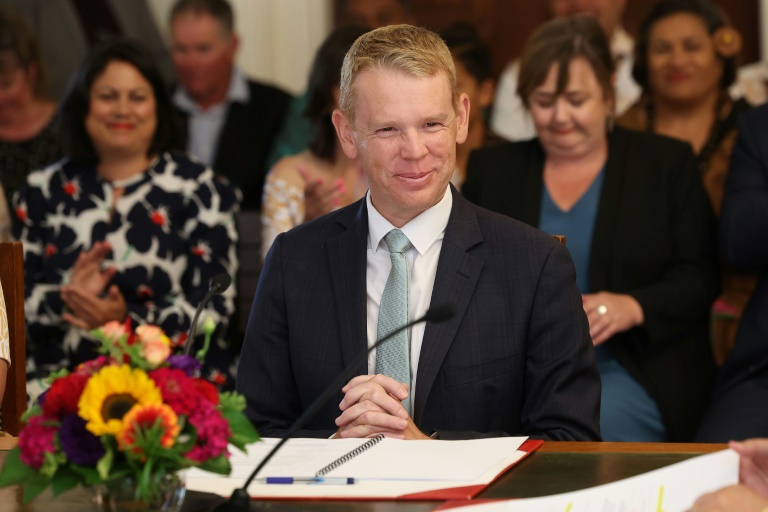New Zealand’s centre-left prime minister, Chris Hipkins, says he is “going full-tilt” to win a general election Saturday, vowing to defy polls indicating an end to his brief reign since his charismatic predecessor Jacinda Ardern stepped down.
Despite a reputation for political nous, self-deprecating humour and a deep fondness for sausage-based snacks, support for Hipkins’ Labour Party has seeped away in the face of a severe cost-of-living crisis and multiple cabinet scandals.
Nine months after Ardern resigned saying she no longer had “enough in the tank”, a Guardian Essential poll this week showed the conservative opposition National Party leading Labour by about 34 percent to 30 percent.
But her 45-year-old successor put on a brave face on the eve of the election while campaigning in Auckland, where he took part in a seniors’ Zumba dance class.
“Look, I’m not even thinking about a Plan B, I’m absolutely going full tilt to make sure we win tomorrow,” the prime minister told reporters.
Hipkins’ main rival, 53-year-old opposition National Party leader Christopher Luxon, a former airline executive, appears to be winning over hard-hit voters with a promise to cut taxes.
His National party could win enough seats to form a coalition government with the ACT party, although recent polls suggest they may also need the support of more populist New Zealand First.
“I want to make sure we deliver a government and change in this country so that every New Zealander can flourish and get ahead,” Luxon said in Waikato, south of Auckland.
“If you’re struggling with your mortgage, your rent, your food and your fuel bills, if you aren’t feeling safe in your own community… then I am encouraging you to say that you need change.”
The two rivals clashed in a final televised debate on Thursday in which Hipkins described the National Party tax cut promise as a “swindle” and each man accused the other of running a negative campaign.
Luxon has criticised Hipkins’ leadership after the prime minister admitted to a “messy” few months in government during which four ministers either resigned or were sacked.
Both Luxon and Hipkins are trying to woo voters with the promise of lower household bills.
Hipkins has offered a 10-point plan including free prescriptions and basic dental care for the under-30s, plus scrapping tax on fresh fruit and vegetables.
Luxon is promising tax cuts worth up to NZ$125 (US$74) per week to an average-income family, partly paid for by a controversial plan to tax top-end luxury homes bought by foreigners.
Ardern, who is in the United States to take up a fellowship at Harvard, this week urged New Zealanders to “vote for what you believe in”.
“Labour has had two terms in office. Long enough to make progress but not long enough to finish the job, and our country needs them to finish the job,” she said.
Once the youngest woman leader in the world, Ardern steered New Zealand through natural disasters, the Covid-19 pandemic and the 2019 Christchurch mosque massacre — in which a white supremacist gunman killed 51 Muslim worshippers.
But she became a lightning rod for online abuse as her premiership wore on, and was regularly targeted in social media posts filled with violent and sexist language.
New Zealand has a legal ban on election day campaigning and news reporting that is “likely to influence voters”.






